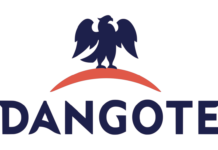
Onwubuke, Melvin – According to the World Bank’s Macro Poverty Outlook for Nigeria in April 2024, 10 million Nigerians were pushed below the poverty line in 2023 as a result of rising inflation and weak income.
The report pointed out that the country’s economic growth has been insufficient to improve living standards, given that nominal income has been significantly lagging behind the sharp rise in inflation rates, “Nominal earnings have not kept up with inflation, pushing another 10 million Nigerians into poverty in 2023.”
Poverty rates in Nigeria have spiraled to concerning levels across various economic thresholds, according to the World Bank’s statistics.
The international poverty rate, which is pegged at $2.15 per day, stands at 30.9%.
In addition the lower middle-income poverty threshold of $3.65 per day shows that 63.5% of the population in Nigeria lives in poverty, while a whopping 90.8 per cent fall below the upper middle-income poverty line of $6.85 per day.
A combination of weak macroeconomic fundamentals and deep structural constraints is cited in the report as the cause of this alarming situation.
Over-reliance on oil was identified as one of the major factors; as a result of the deterioration in the oil sector’s performance, there has been an adverse impact on macro stability.
The report noted: “Nigeria’s economic growth has been insufficient to raise living standards, weighed down by weak macroeconomic fundamentals and several structural constraints. Overreliance on the oil sector for fiscal revenues, exports, and FX inflows led macro stability to erode with the sector’s deteriorating performance in recent years. Low revenues—including due to a costly petrol subsidy, low tax rates, and weak tax administration—have limited state capacity and public service delivery.
“Inflation has remained high and escalating on the back of a relatively loose monetary policy and exchange rate depreciation. Structural factors holding back the country’s growth potential include lack of adequate energy and transport infrastructure, high domestic trade costs and foreign trade protectionism, widespread insecurity, weak institutions, and low levels of human capital development.”
Nigeria’s inflation rate increased to 33.2% for March 2024. This represents 1.5%-points increase from the 31.7% recorded in February 2024.








